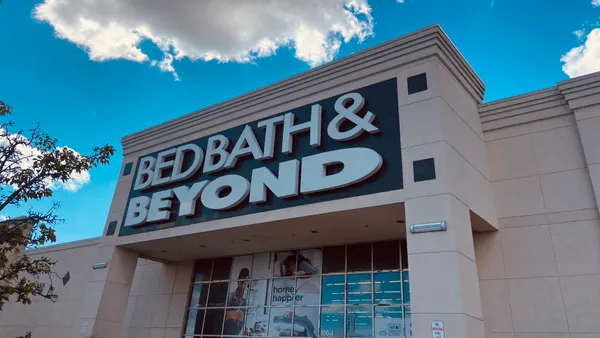Dive Brief:
- Seventy to eighty percent of early tech adopters are interested in using virtual reality (VR) to enhance their shopping experience, according to a survey by global management firm L.E.K. Consulting. These consumers said they're eager to use the emerging tech for home improvement projects, virtually trying on clothing and taking shopping trips with friends who aren't physically present.
- Seventy percent of respondents reported that they want to use "v-commerce" — which L.E.K. described as a VR-enhanced blend of e-commerce and brick-and-mortar shopping — for virtually sampling things like makeup and customizing products like eyeglasses to fit their individual preferences.
- The survey noted some risks retailers take when investing in VR, including a high cost upfront and the potential that consumers won't use the tech.
Dive Insight:
Though still in its infancy, VR is beginning to see more experimentation from brands as a way to enhance consumers' shopping experiences at home, via mobile devices or in stores. Ikea, the Swedish home furnishings chain with 393 stores worldwide, set up a VR test kitchen at a Toronto storefront in March that let visitors do things like flip pancakes and try out appliances, for example.
In May, Guinness partnered with U.K.-based grocer Tesco for a similar promotion, crafting a VR experience to enhance taste tests of a new line of beers. By partnering with retailers for VR promotions like these, marketers can spark greater levels of excitement from consumers. as the format is shown to drive higher levels of engagement and emotional response compared to more traditional ads.
From a marketer's perspective, integrating this emerging technology into mobile strategies, in particular, will likely ease consumers' shopping journey and boost sales. And, at least according to L.E.K., consumers appear to be more than willing to give VR a spin, signaling to retailers that the often hefty investment associated with integrating the technology could be worth it.













